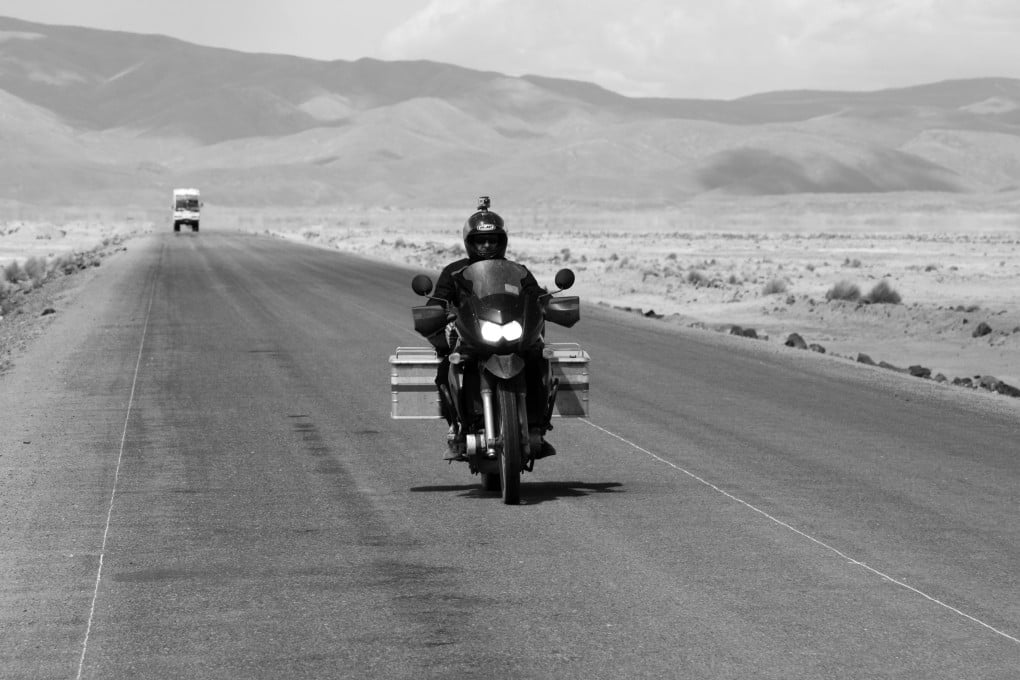Review | In Menno Moto, Cameron Dueck journeys from Canada to Argentina in search of Mennonite culture – and himself
A 45,000km motorcycle ride, visiting Mennonite communities through the Americas, reveals much about schisms in the isolated religious communities but offers little in self-discovery

Menno Moto by Cameron Dueck, Biblioasis
The idea of travelling to find oneself should have been abandoned at the roadside long ago. Any writer travelling this well-beaten path needs to be someone extraordinary and what is sought should be worth the discovery.
“I was going on an epic journey to find out who I was,” announces Cameron Dueck in Menno Moto, an account of an eight-month, 45,000km motorcycle journey from Canada to Argentina, but even he was embarrassed to reveal this motive when asked. “I answered that I liked adventure and that I wanted to learn more about Mennonite culture.”
Mennonites, like the Amish, are Anabaptist Christians, who reject the baptism of all but adults. Unlike the Amish, they never had a film like the 1985 Harrison Ford vehicle Witnessto bring them to public attention. They similarly live largely in segregated agricultural communities, reject modern technology (or pretend to), and speak an obscure dialect of low German called Plautdietsch, incomprehensible to those among whom they settle and from whom they demand a Privilegium – a document guaranteeing special treatment on education, military service and more.

Dueck may not have rejected modern technology, but there’s something of the 19th century in observations such as, “My only steady companion was my motorcycle. I’d chosen it like a lot of Mennonites chose their wife – it was sturdy, simple, and with a long history of reliable performance.”